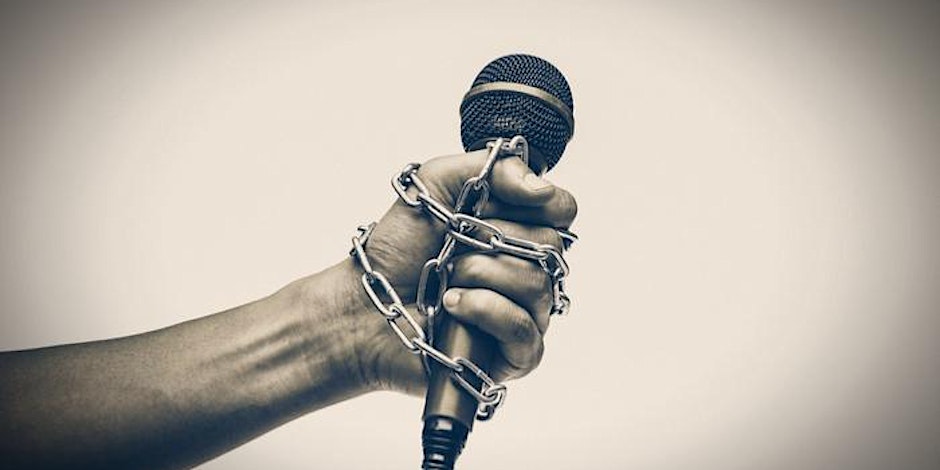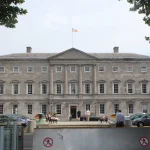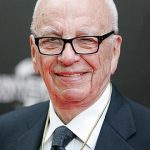Marking World Press Freedom Day on May 3, William Horsley questions what the Commonwealth is doing to protect free speech.
Horsley is chair of the AEJ UK but writes here as international director of the Centre for Freedom of the Media at the University of Sheffield, which holds the UNESCO chair on media freedom and safety of journalists.
Can the Commonwealth survive without free speech?
William Horsley, CFOM International Director, 28 April 2023
“Is it time to scrap the Commonwealth?” The question was met with laughter when asked at a gathering of Commonwealth insiders last January in Windsor Great Park, but it was meant seriously.
Joel Kibazo, a former spokesperson for the Commonwealth Secretariat, observed that in times past the organisation earned international respect for standing up against apartheid and taking strong action against member states that trampled on democratic values. But today young people just don’t care because the organisation seems to have nothing substantial to say. Its budget and capacity for action are much diminished. Discontented states have withheld their membership dues. So why not “put the Commonwealth out of its misery?”
Despite the pomp around the annual Commonwealth Day celebrations in London in March, such doubts are often voiced at Commonwealth-related gatherings nowadays. Many grassroots organisations do valuable work to benefit communities in countries that are geographically far apart, but a distinct hollowing out of democratic institutions has been evident to a greater or lesser extent in Commonwealth countries in every region of the world. If unchallenged, that drift away from international standards and norms will represent an existential threat to the organisation’s survival.
How states deal with the right to free expression – with respect and self-restraint or with coercion and censorship – is a defining issue of the 21st century. And a glaring gap has been allowed to open up in the Commonwealth between what it says and what it does about protecting free speech and media freedom. Critics have warned publicly that inaction fosters a culture of impunity.
Re-invention or decline?
While organisations like the African Union, the European Union and the Organization for Security and Cooperation in Europe have all updated their priorities to face up to the global spread of arbitrary government and autocracy, the Commonwealth has failed to re-invent itself in ways which would allow it to maintain the international status it still aspires to enjoy. That much is evident from the habitual silence from the Commonwealth’s 56 governments and the Secretariat in London whenever egregious abuses are reported and condemned in other forums. As a result the organisation is wide open to accusations of double standards and complacency in the face of alarming evidence of democratic backsliding.
Rahul Gandhi, India’s opposition leader, broke that spell last month by declaring on a visit to Britain that democracy in his country is dying, and he asked “Why is there no reaction?”. The speech followed Gandhi’s expulsion from parliament after what is widely seen as a political defamation case. He cited the recent tax raids on the BBC’s offices in India as fresh evidence that the Modi government has captured the civil service and other institutions to silence its critics and stay in power.
Freedom of expression “the key driver of other universal rights”
Around the world, journalists and human rights defenders face violent attacks, online threats and multiple abuses of law on account of their work to expose corruption and advance public demands for political rights and accountable government. The coming 30th anniversary of UN World Press Freedom Day on 3 May will direct global attention to the urgent necessity of action by governments and international bodies to protect free expression and media freedom because together they give effect to a wide range of other fundamental rights
Yet a report published last year by the Institute of Commonwealth Studies presents a picture of media freedom under crippling attack from the misuse of official power and a habitual lack of protection in a great many Commonwealth states. The report highlights the case for member states to counter “unacceptable” levels of impunity and repeal laws that unduly impede journalists’ work. Colonial legacy laws that criminalise defamation, sedition and blasphemy are still widely maintained and in some cases have been reinforced by new ones on “spreading false news” and restricting digital rights.
The “institutional” Commonwealth ignored public warnings in 2022 when the Commonwealth’s newest members – Togo and Gabon in French-speaking Africa – were admitted as members without any meaningful public debate or accountable process of scrutiny. A statement from Civicus, a global alliance of civil society organisations, reminded leaders that members must demonstrate commitment to democracy and human rights. But “neither government allows truly free and fair elections, and both severely restrict people’s rights to organise, protest and speak out”. States seem to want to join the Commonwealth, Civicus said, not to abide by its stated values but “to use their membership to launder their repressive reputations”. Yet Commonwealth officials and member state governments were unmoved.
A journalist’s death foretold
In January this year the Rwandan journalist John Williams Ntwali, one of the few in that country brave enough to write about repression, disappearances and abuses of power in his country, died a violent death. His family asserted foul play but a court ruled after a closed trial that Ntwali died in an ordinary traffic accident. In June last year, as Commonwealth leaders gathered in the capital Kigali for a Heads of Government Meeting (CHOGM), a chorus of civil society voices called on them to put the strongest pressure on the Rwandan government to end torture, arbitrary detentions and other abuses. But it was in vain.
The journalist had foreseen the danger to his life. He told Human Rights Watch at the time that government officials warned him to change his tone and that “after CHOGM they won’t play around with us anymore”. Within months John Williams Ntwali was dead. Over 80 non-government organisations questioned the way the trial was conducted and called for an independent investigation. The Commonwealth again declined to speak out.
Retreat from implementation of pledges
Ten years ago the Commonwealth adopted a Charter which was inspired by the recognition by its leaders of a “surge in popular demands for democracy [and] human rights”. The Charter also contained a commitment to the Universal Declaration of Human Rights and “relevant human rights covenants and international instruments.” Earlier, in 2003, the Commonwealth had established a set of fundamental political principles which say that government accountability calls for the media to be “protected by law in its freedom to report and comment on public affairs”.
Why does the organisation still lack agreed means to implement its own pledges? The retreat can be traced to three failures of political nerve.
- In a public lecture marking the Charter’s tenth anniversary in March this year the man who drafted it, former Australian judge Michael Kirby, recalled that a trusted “wise persons’ group” had proposed the creation of a Commonwealth Commissioner for Human Rights to ensure that the Charter could be enforced. The group believed that an independent Commissioner would be able to demand action in response to “the unacceptable conduct of leaders”, but without such a mechanism “nothing would ever get done”. Instead, as a result of what Mr Kirby called an “arbitrary decision without consultation or consensus”, the Commissioner proposal was quashed.
- Having ruled out an independent Commissioner, in 2011 Commonwealth announced a widening of the mandate of the existing Commonwealth Ministerial Action Group (CMAG), which since 1995 had been charged with making recommendations to “restore democracy and constitutional rule” when those are threatened. Under the new mandate, CMAG (a rotating group of member state foreign ministers) was also expected to deal with concerns related to “egregious violations of human rights, the undermining of the judiciary… and systematic constraints on civil society and the media”. Persistent or serious violations could lead to suspension of membership or expulsion. But in reality CMAG has consistently been silent in the wake of a multitude of murders, kidnappings and jailings of journalists in Commonwealth countries, as well as waves of repression and arbitrary deprivation of rights. Another promise unfulfilled.
- In November 2022, a multi-year campaign by six Commonwealth-accredited professional associations led finally to the adoption by Law Ministers of another formal text – an 11-point set of Commonwealth Principles on freedom of expression and the role of the media in good governance. The ministers also commended the Media Principles to Commonwealth heads of government who will meet sometime next year. Human rights lawyers and concerned stakeholders have made clear why they have significant concerns that the Principles — as approved and revised by Commonwealth states — fall below the level of protections for media freedom guaranteed in international law, but some key concerns have been brushed aside. They relate, for example, to the use of criminal sanctions against journalists and weaker legal safeguards for the protection of journalists’ sources,
Theatre of the absurd
But the greatest concern of all is that the Commonwealth Law Ministers who met in Mauritius on 22-25 November 2022 chose – absurdly – not to follow through on their own Recommendation, which specifically urged them “to take concrete and meaningful steps to implement the revised principles within their domestic frameworks”. That crucially important Recommendation was presented to them in writing in the name of their own governments, which had taken part in the lengthy process of reviewing the Media Principles to be ready for adoption. No explanation was given by officials at the time or in response to inquiries.
A similar recommendation in favour of “implementation”, as well as a public commitment to review and improve the Principles over time, was delivered to the ministers in a written Submission by the six civil society organisations whose engagement was key to a set of Commonwealth Media Principles coming into existence at all.
In a Kafka-esque twist, the Ministers praised those civil society groups for their “valuable contribution” to the process. The Preamble also speaks of a “spirit of partnership” with civil society. Yet the ministers did not even pause to discuss the merits of starting to take those “concrete and meaningful steps”. No mechanism and no plan. Not even the prospect of a genuine dialogue with the professional bodies and grassroots organisations directly concerned.
Plan of Action or empty words?
What next? The Commonwealth has demonstrated a spectacular habit of declaring lofty principles concerning the protection of civil and political rights but doing little or nothing to put them into effect. How is the organisation to be seen as credible if its representatives take decisions behind closed doors which contradict or negate its ringing public commitments to accountable government, civil and political rights, and inclusion of civil society voices? With barely 18 months remaining before Commonwealth leaders meet again to decide the organisation’s future priorities, the choice they face is either to align with the international community’s urgent call to protect free speech with new determination or to side in effect with the enemies of participatory democracy.
There is a basis for a good outcome, if willing governments show the necessary strength of purpose. The Commonwealth Media Principles state formally for the first time that member countries should ensure that their public officials “respect their international legal obligations” and “establish a safe and enabling environment for journalists and media workers”. Civil society organisations have overcome many hurdles and delays to put the issue on the Commonwealth’s agenda. If member governments can at last demonstrate the integrity and political will to implement these principles, with independent oversight and through open and frank dialogue, the organisation will regain its vigour and its value to its own populations. But empty promises will be seen for what they are and must be called out.
The six Commonwealth Organisations which published civil society’s Commonwealth Media Principles in 2018 are the Commonwealth Journalists Association, Commonwealth Lawyers Association, Commonwealth Legal Educators Association, Commonwealth Human Rights Initiative, Commonwealth Parliamentary Association, and Institute of Commonwealth Studies.
Original article from the Centre for Freedom of the Media
World Press Freedom Day
Commonwealth Journalists Association








